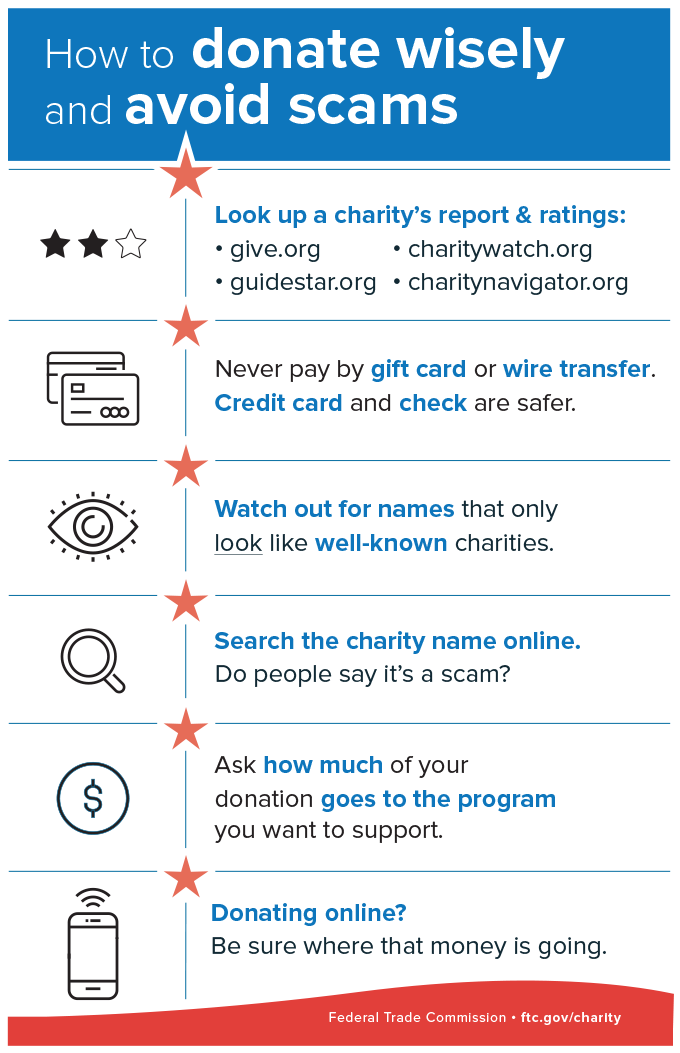Natural disasters and weather emergencies are in the news. Whether it’s the devastating wildfires along the West Coast, the relentless rains and flooding along the East Coast, or tornado strikes in the Midwest, it’s heartbreaking to see people lose their homes and businesses. But it’s despicable when scammers exploit such tragedies to appeal to your sense of generosity.
If you’re looking for a way to help, the FTC urges you to be cautious of potential charity scams. Do some research to ensure that your donation will go to a reputable organization that will use the money as promised.
Consider these tips:
- Donate to charities you know and trust with a proven track record with dealing with disasters.
- Be alert for charities that seem to have sprung up overnight in connection with current events. Check out the charity with the Better Business Bureau's (BBB) Wise Giving Alliance, Charity Navigator, Charity Watch, or GuideStar.
- Designate the disaster so you can ensure your funds are going to disaster relief, rather than a general fund that the charity could use for any of its work.
- If you get donation requests by email, never click on links or open attachments in e-mails unless you know who sent it. You could unknowingly install malware on your computer.
- Don’t assume that charity messages posted on social media are legitimate. Research the organization yourself.
- When texting to donate, confirm the number with the source before you donate. The charge will show up on your mobile phone bill, but donations are not immediate.
- Find out if the charity or fundraiser must be registered in your state by contacting the National Association of State Charity Officials. If they should be registered, but they're not, consider donating through another charity.
To learn more, go to ftc.gov/charity. For tips to help you prepare for, deal with, and recover from a natural disaster or severe weather event, visit Dealing with Weather Emergencies.

